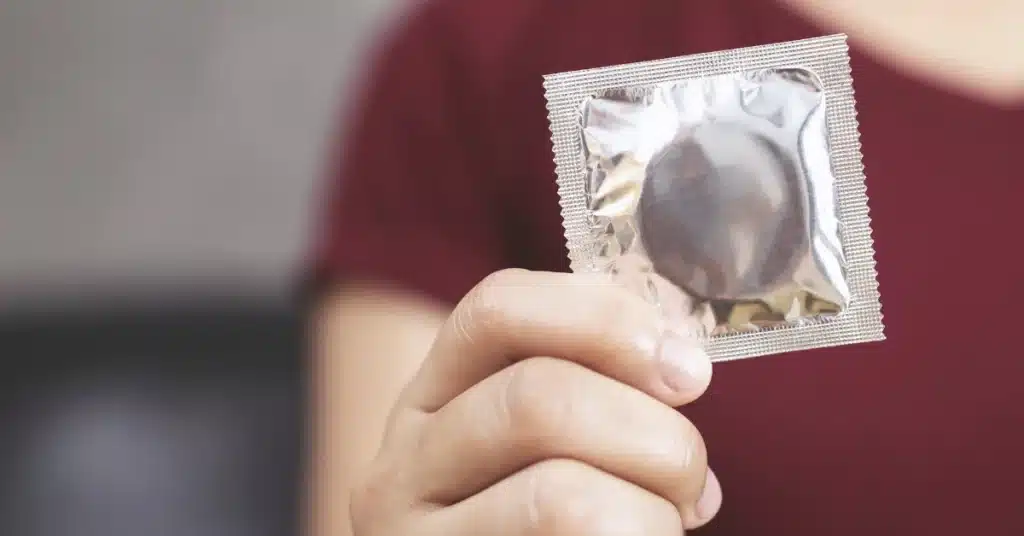Can You Get Gonorrhea from Kissing? Unveiling the Risks and Prevention
Gonorrhea, a Sexually Transmitted Infection (STI) caused by the bacterium Neisseria Gonorrhoeae, can present with a range of symptoms or, in some cases, none at all.
It predominantly targets the mucous membranes of the reproductive and urinary tracts.
However, it can also influence the mouth, throat, eyes, and rectum.
The infection can manifest with symptoms such as discharge, pain during urination, and in some cases, it may be asymptomatic.
In this article, we will read whether can you get Gonorrhea from kissing, its mode of transmission, treatment, and precautions.
Can you get Gonorrhea from kissing
Gonorrhea, an STI, is attributed to the bacterium Neisseria Gonorrhoeae.
While the bacterium thrives in warm, moist areas like the reproductive tract, the risk of transmission through casual contact, such as kissing, is low.
The mouth is not an ideal environment for the Neisseria Gonorrhoeae bacterium to establish an infection.
The transmission of Gonorrhea through kissing is further diminished by the fact that the bacterium primarily targets the genital and anal regions.
For transmission to occur, there needs to be direct contact with infected fluids from these specific areas.
However, it’s crucial to note that engaging in unprotected oral sex with an infected partner does pose a risk of contracting Gonorrhea.
The bacterium can infect the throat during oral sex, emphasizing the importance of safe sex practices in intimate relationships.
How is Gonorrhea transmitted

To better understand the limited risk associated with kissing, it’s essential to explore how Gonorrhea is typically transmitted.
- Sexual activities: The most common mode of Gonorrhea transmission is through various forms of sexual activity, including vaginal, anal, and oral sex
- Unprotected oral Sex: While kissing poses a low risk, unprotected oral sex can lead to Gonorrhea transmission, particularly affecting the throat
- Mother-to-child transmission: In rare cases, a pregnant woman carrying Gonorrhea may pass on the infection to her newborn during the process of childbirth
Treatment
If diagnosed with Gonorrhea, prompt treatment is crucial to prevent complications.
Commonly prescribed for eliminating the infection, antibiotics like Ceftriaxone and Azithromycin are often recommended.
Completing the entire antibiotic course is crucial, even if symptoms show improvement, to guarantee the thorough elimination of the bacteria.
Precautions

While treatment is vital, prevention is equally important.
Here are some precautions to reduce the risk of Gonorrhea:
- Safe sex practices: Use condoms consistently and correctly during vaginal, anal, and oral sex
- Regular testing: Get tested for STIs regularly, especially if you have multiple sexual partners
- Communication: Openly communicate with sexual partners about STI testing and history
- Avoiding unprotected oral sex: If engaging in oral sex, using barriers such as dental dams or condoms can help reduce the risk
- Screening during pregnancy: Pregnant individuals should undergo STI screening to prevent mother-to-child transmission
Conclusion
Gonorrhea, caused by Neisseria Gonorrhoeae, primarily affects the reproductive tract but can impact other areas.
While the risk of Gonorrhea transmission through kissing is minimal, unprotected oral sex poses a higher risk.
Transmission through casual contact is unlikely due to the mouth’s inhospitable environment for Neisseria Gonorrhoeae.
Prompt treatment with antibiotics such as Ceftriaxone and Azithromycin is crucial upon diagnosis.
Preventive measures, including safe sex practices, regular testing, and open communication with partners, play a vital role in reducing the risk of Gonorrhea and maintaining overall health.
Frequently Asked Questions
Can you get Gonorrhea from kissing someone with oral Gonorrhea?
While the risk is lower compared to other forms of transmission, it’s still possible to contract Gonorrhea through kissing someone with oral Gonorrhea. It’s important to be aware of potential risks and practice safe behaviors.
What are the symptoms of oral Gonorrhea?
Symptoms of oral Gonorrhea may manifest as a sore throat, difficulty swallowing, and swollen lymph nodes. However, some individuals may not exhibit any symptoms, highlighting the importance of regular testing and communication with healthcare professionals.
How is Gonorrhea diagnosed?
Gonorrhea is diagnosed through laboratory tests, including urine samples or swabs taken from the infected area. Seeking timely medical attention for proper testing is important to ensure accurate diagnosis and appropriate treatment.
Is Gonorrhea treatable?
Yes, Gonorrhea is treatable with antibiotics such as Ceftriaxone and Azithromycin. Swift medical intervention is essential for a proper diagnosis and the administration of appropriate antibiotics. It’s imperative to complete the prescribed treatment to eliminate the infection and prevent potential complications effectively.
WowRx uses only high-quality sources while writing our articles. Please read our content information policy to know more about how we keep our content reliable and trustworthy.






